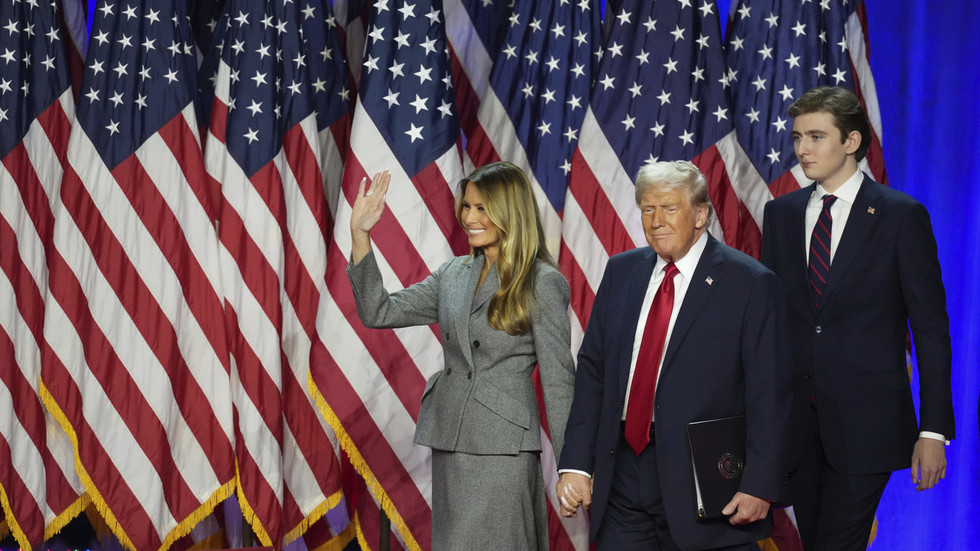In a dramatic announcement from his Mar-a-Lago resort, Donald Trump has declared victory in the highly contested 2024 U.S. presidential election, establishing himself as the 47th president of the United States. The Republican nominee addressed his supporters with overwhelming enthusiasm, claiming the election marked the beginning of a “golden age” for America and branded his political movement as the greatest in history. He emphasized the significance of the victory, suggesting that it represented a culmination of perseverance and resilience against seemingly insurmountable obstacles. Trump’s declarations of triumph energized his base, as he expressed gratitude to the American people for their support, vowing to be a president who would fight for them “every single day.”
In his victory speech, Trump outlined ambitious goals focused on national prosperity and security, predicting a strong performance in the electoral college and the popular vote once all results were finalized. Trump’s confident assertion of winning 315 electoral votes showcased his optimism about the election’s outcome. His message was layered with calls for unity among Americans, while he concurrently positioned himself as a transformative leader committed to restoring the greatness of the nation. His rhetoric underscored both a sense of personal achievement and a broader political resurgence, aligning with his campaign’s well-known slogan, “Make America Great Again.”
A notable aspect of Trump’s speech was his acknowledgment of key allies and campaign members who played significant roles in securing the victory. He specifically praised the Republican Party’s anticipated majority in the Senate, attributing this success to the momentum generated by his “MAGA movement.” The prospect of continual Republican control in the House was also highlighted, with Trump expressing appreciation for House Speaker Mike Johnson’s effective leadership. This triumphant narrative not only reinforced Trump’s position within the party but also aimed to cultivate further loyalty and enthusiasm among his supporters.
In addition to celebrating the campaign’s overall success, Trump commended his running mate, Senator J.D. Vance, for his bold outreach efforts to engage with media platforms traditionally critical of conservatives. By showcasing Vance’s willingness to engage with outlets like CNN and MSNBC, Trump underscored a strategy of breaking down barriers with the media landscape, which he believes is vital for continuing to expand the reach and impact of Republican ideals. Such outreach is positioned as critical for maintaining the momentum of the MAGA movement as they move forward into governance.
As Trump basked in the glow of his victory, the absence of a concession from Democratic candidate Kamala Harris added an element of tension to the political landscape. While Trump spoke confidently of his achievements, the lingering uncertainty surrounding the election outcome indicated that the final tally was still in flux. As a leading election figure, Harris’s refusal to concede might foreshadow further political battles ahead, suggesting a potentially tumultuous post-election period as both sides prepare to stake their claims in the coming months.
In summary, Trump’s declaration of victory encapsulated a blend of personal triumph, party unity, and future ambitions. Through his rhetoric, he aimed to galvanize support while navigating the complexities associated with an election that remains contested. As he prepares to assume office, the implications of his win could mark a significant shift in American politics, particularly regarding the Republican Party’s influence relative to the Democratic opposition. Whether Trump’s vision for the future will resonate widely among the electorate will depend on the unfolding political narratives and the reactions from both his supporters and detractors in the days and weeks to come.

